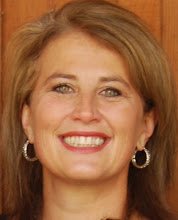Laura’s son, now known as Richard, commits suicide by throwing himself out of his apartment window. It falls (no pun intended) to Clarissa to organize his funeral. The door bell to her apartment rings. There on the doorstep stands Laura Brown, now probably seventy years old, hair in a bun, wrinkled face, with a congenial expression. She is nothing like Clarissa has imagined. She finds her warm, genuine, and still very much Richard’s mother. In fact, when Clarissa says, as she stares at the woman on her doorstep, “You are Laura Brown,” Ms. Brown replies, “Yes. I am Richard’s mother.”
The two women have a conversation in which Clarissa asks Laura about her choices. She starts by asking whether Laura has read Richard’s poems and his novel. Laura replies: “He has me die in the novel. It hurt, of course; I can’t pretend it didn’t hurt. But I know why he did it."
“That’s what I did. I got up one morning, made breakfast . . . went to the bus stop, got on the bus. I’d left a note. I got a job in a library in Canada. It would be wonderful to say you regret it. It would be easy. . . But what does it mean? What does it mean to regret when you have no choice. It’s what you can bear.” "
Which brings me to the other hand of the should-I-stay-or-should-I-go question.
For so many reason, marriage is good for us. We live longer, our children are better adjusted, our earning capacities increase; we can even become better people married than we do alone. In theory, Laura’s marriage to Dan Brown, a good man, should be a source of happiness, especially when the idea of Laura, just the very thought of her, is what carried him through the war. He tells his son, as they eat the birthday cake Laura has baked for him: “I used to think about bringing her to a house, to a life . . . pretty much like this. And it was the thought of the happiness, the thought of this woman . . . the thought of this life . . . that’s what kept me going. I had an idea of our happiness.”
Laura doesn’t have that same idea. This marriage and this motherhood is not “life” for Laura Brown. The hours of her life fill her with a sense of sadness and hopelessness so pervasive the only solution she can think of is her own extinction. (Hold comments about post-partum depression, latent lesbianism in a repressive 1950s sexual climate, and “buck up, things are always a bit rough in the first few years.”) For me, when your own death (or somebody else’s) seems a release from your present life, where you are is not a good place to be. Sometimes the only way to change that place is to go somewhere else. Move your X marks the spot to a different part of the map. Take those around you with you—if they will. Or go on your own.
That evening, Laura sits on the toilet, silently weeping. Her happy, oblivious by choice or by nature, husband is seen in the background through the open bathroom door, entreating her to “Come to bed, honey.” It is there, on the toilet, that she draws the line and makes her plan. From her demeanor, this is not a choice made without pain. She is mourning her choice, and the consequences she knows will follow. But, there, in the bathroom, she chooses life, which, for her, means leaving her husband, her children and becoming a librarian in Canada. The other was more than she knew or thought she could bear.
Sometimes the bravest thing is, as Virginia Woolf says, “to look life in the face and to know it [and yourself] for what it is.” And to choose to live—whatever form it takes. This could mean leaving your childhood church where, for some reason, you are unable to reach God, and making your own tracks until you are able to recognize and hear a divine voice. It could mean cutting off ties with a family member. It may mean leaving a marriage which has been the site of tremendous unhappiness, in which the injuries and dysfunctional patterns go so deep that all is left is exhaustion, and in which thinking of the years stretching ahead creates such internal bleakness that stamping books in the middle of a Saskatchewan winter sounds like mojitos on the Mexican Riviera. It should not mean a metaphorical burial in the suicide’s corner of the community graveyard. But it might—because the some of us don’t know how to process ambiguity very well.
As the fifty-something widower lady looking for an apartment in Paris said on House Hunters International, when she saw exactly what one million U.S. dollars could buy in the seventh arrondissement, “This is not what I expected; not what I expected at all.” Sometimes, the first steps on the path that leads back to life are just that: not what we expect at all.

loved that movie. i didn't want to leave the dark of the movie theater and step back into 'real' life. i even drove around for about an hour just to be by myself and process it a bit. i was going home to two small children whom i adored...but knew would quickly turn my attention to 'lighter' things. lighter things weren't what i was in the mood for at that moment.
ReplyDelete